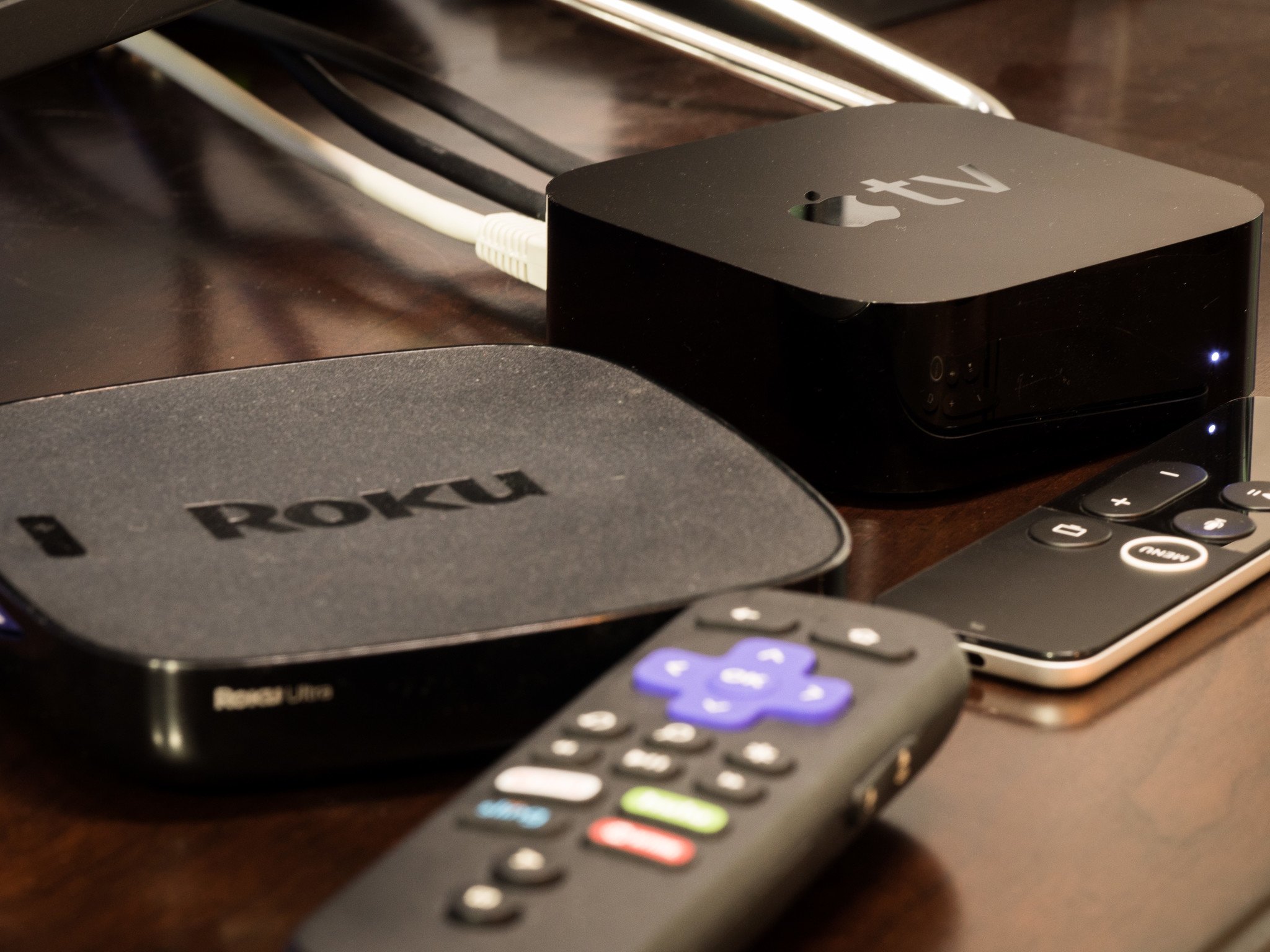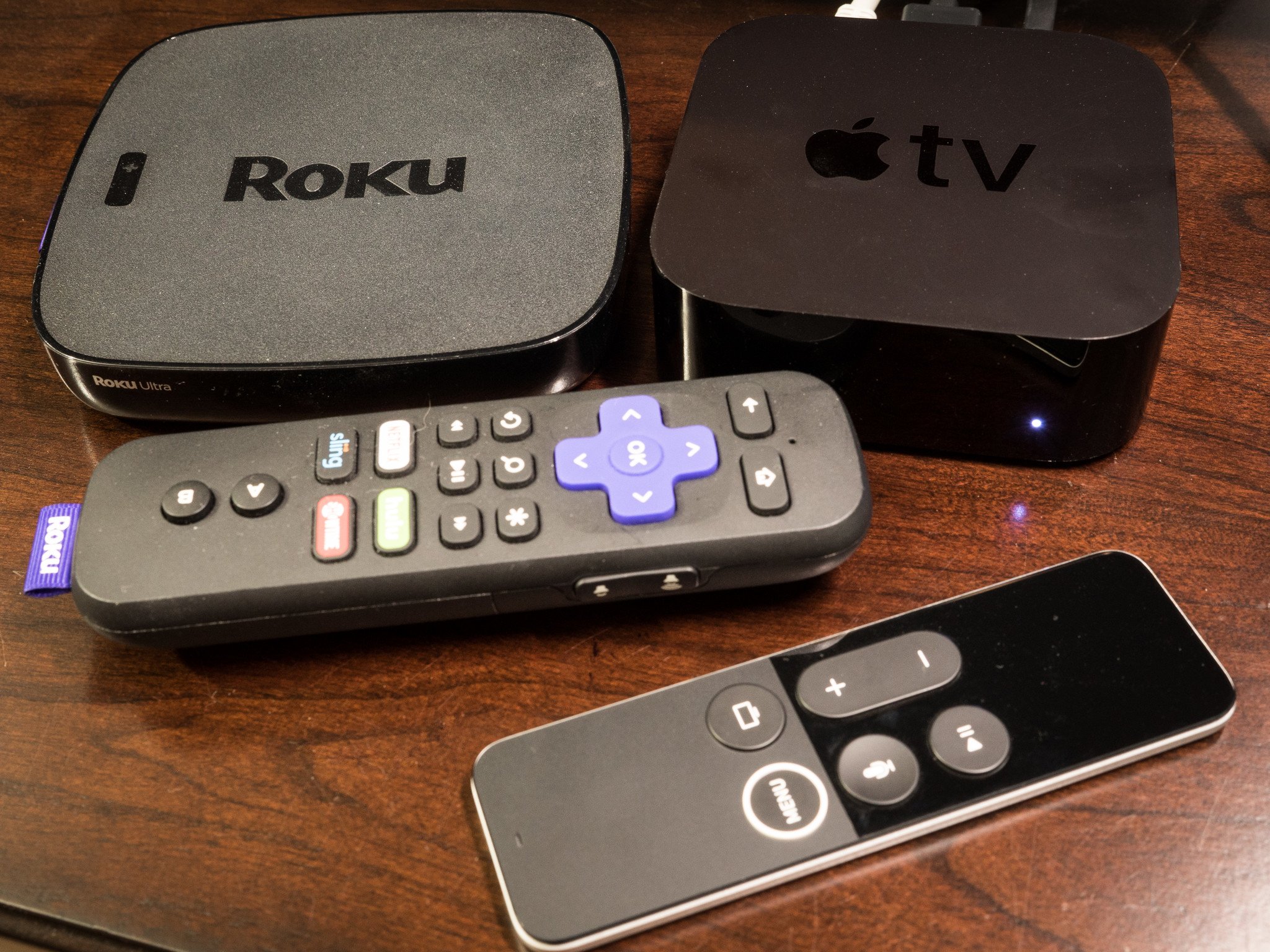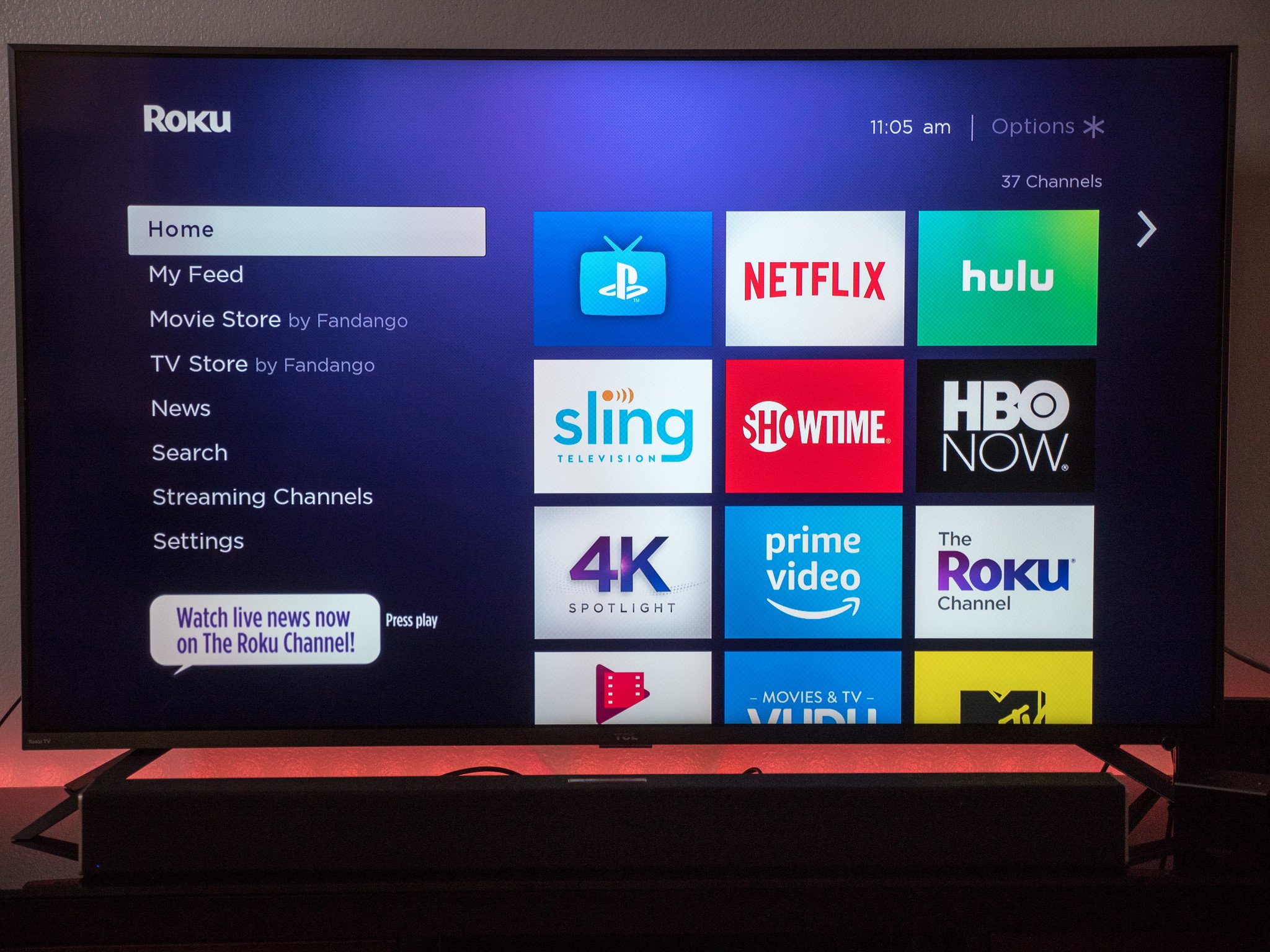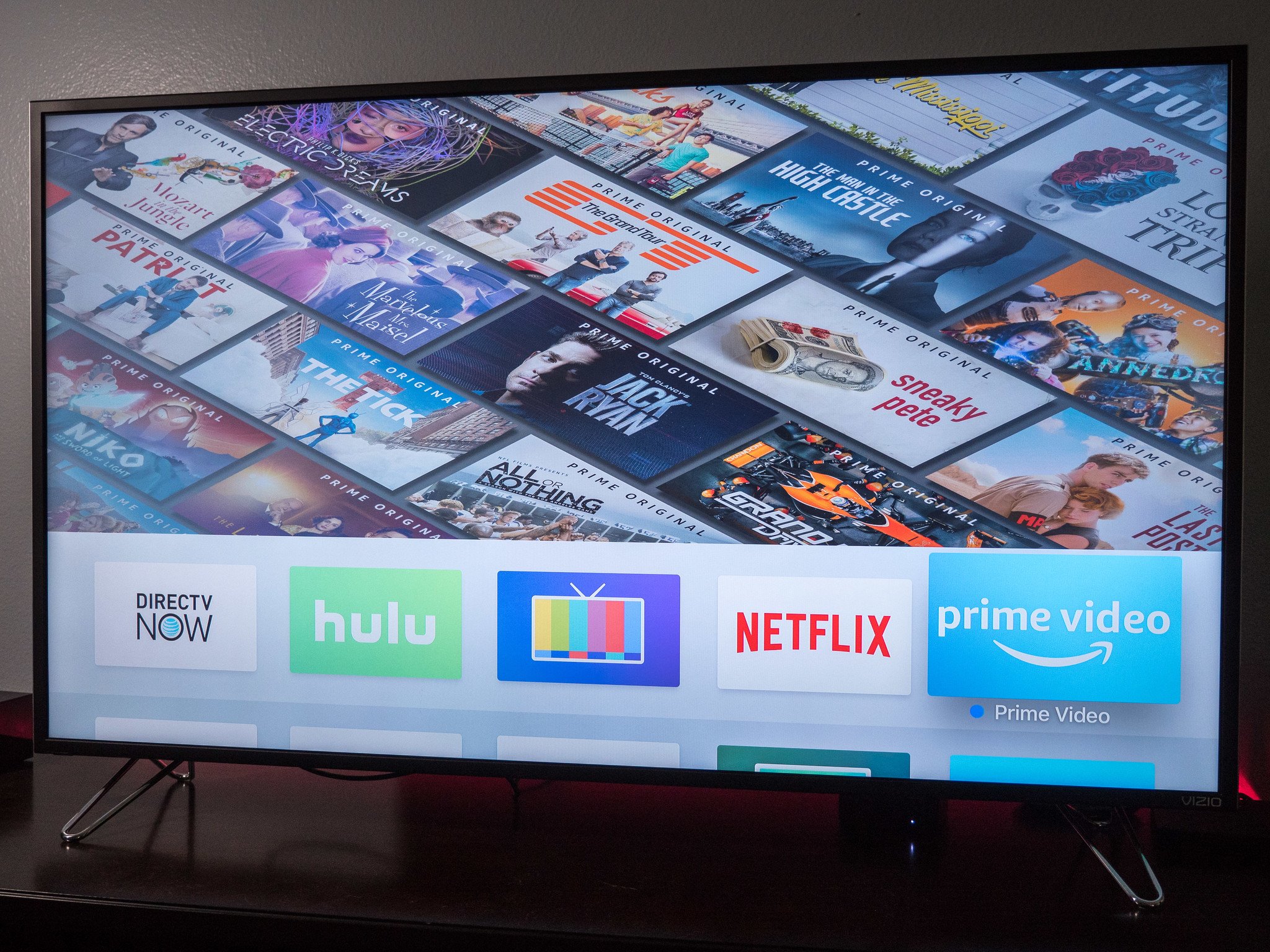Roku Ultra vs. Apple TV 4K
It's Apple's best option vs. Roku's more-affordable option

Why, in the name of all things tech, would someone buy an Apple TV 4K over a Roku Ultra? Both stream videos. Both do 4K resolution. Both can handle (some) of that newfangled HDR. Both have access to pretty much all the content you could possibly watch, be it live TV or huge repositories of movies and shows.
Oh, and one costs twice as much as the other.
Well, there are reasons to get one over the other. And they're good reasons. With lots of dollar signs attached.
Let's talk.
See also: Roku Ultra vs. Amazon Fire TV Cube
And: Roku Ultra vs. NVIDIA Shield TV
Roku Ultra vs. Apple TV — specs and hardware
| Category | Apple TV 4K | Roku Ultra |
|---|---|---|
| Row 0 - Cell 0 | Row 0 - Cell 1 | Row 0 - Cell 2 |
| Price | $179/199 | $89 |
| Max resolution | 2160p (4K) | 2160p (4K) |
| Operating system | tvOS 12.0 | Roku OS |
| Processor | Apple A10X Fusion | ARM Coretex A53 |
| GPU | Apple A10X Fusion | n/a |
| Storage | 32GB/64GBGB | 512MB |
| RAM | 3GB | 1GB |
| External storage | None | USB-A/microSD |
| Bluetooth | BT 4.0 | No |
| Wifi | 802.11ac | 802.11ac |
| Ethernet | Ethernet port | Ethernet port |
| Dolby Atmos | Coming | Yes |
| Dolby Vision | Yes | No |
| HDR 10 | Yes | Yes |
| CEC control | Yes | Yes |
| Audio out | HDMI | Optical/HDMI |
| Voice remote | Yes | Yes |
| Private listening | Via Bluetooth | Via voice remote |
| See at Amazon | $179/$199 | $89 $45 at Walmart |
The specs don't lie. In fact, they basically scream at you. Apple TV 4K is a more powerful device than Roku Ultra. There are no two ways around that. Better processor. More RAM. Is it an (excuse me) apples to apples comparison? No. And both devices sport an Ethernet port, so you can plug directly into your router and ensure the best connection possible. And both devices also output at 4K resolutions just fine.
So why does it matter?
The latest updates, reviews and unmissable series to watch and more!

In a word, performance. Apple TV is faster. Faster to boot up. (On the rare occasion that you have to restart one of these things.) It's faster to load applications. And applications tend to run faster on Apple TV once they're loaded.
So maybe let's chance that word from "performance" to "experience." Apple TV 4K, in my book (and I use both of these devices every day) is a better overall experience.
Look at it like this: Streaming TV already is more of a headache than an old cable box, right? Instead of a single, siloed experience, we've got multiple streaming services coded by multiple developers, to varying degrees of success. Streaming video just isn't as easy, and so we tend to be less tolerant of added headaches. I want a cable-like experience, without the cable-like prices.
Apple TV 4K gets you closest to that. (Which is why it's also our pick for the streaming best box you can buy , period.)
There is the issue of remote controls, though. I'm no fan of the Apple TV remote. (Excuse me, the "Siri Remote." It's functional enough, I guess, though it's not what I'd call fun to use. The trackpad is a nice idea but not exactly ergonomic. The weird menu/home/back hybrid button thing is a mess. The remote itself is too skinny and flat and tiny and will absolutely get lost in a couch. You should buy one of these sleeve things to make it a little better.
But, hey. At least it has volume buttons , right?
The Roku Ultra Voice Remote almost hits the other extreme. It's simple. It's intuitive. It's made like it's something you'd give to your grandparents without them having to ask questions later. And it's got an integrated 3.5mm headphone jack for private listening, which is cool. It's not sleek. It's not sexy. But it works, and it works really well.


Roku Ultra vs. Apple TV 4K — software
There's perhaps and even bigger gulf when it comes to the software experience on Apple TV 4K and Roku Ultra.
Apple is, of course, all about sparseness. The home screen is — as always — just a sea of icons. That's not horrible in a big-screen context, actually. The fewer menus, the better. Navigating through levels is never fun.
And Roku OS isn't exactly devoid of icons, either. Its apps — Roku calls them "channels" are in their own grid, with settings and options and other menus in a more traditional hierarchy off on the side.
Roku OS absolutely is the busier operating system here. You're more likely to find yourself down some sort of content rabbit hole — at least initially — with various options for movies and shows and rentals and apps. Apple tends to keep things a little neater, save for its "TV" app, which messily attempts to aggregate all sorts of content from all sorts of sources in one place. It's still clunky, though.
Which is better? I'd still argue the experience is still completely governed by the speed at which it performs. I'm more willing to put up with a lesser interface — provided that its faster.
But in this case? Apple is simpler. Apple is faster. Apple is better.
Apple TV 4K also handles MPEG-2 videos, which is lacking on Roku. That means no HDHomerun , if that's your over-the-air network box of choice. And for a good many of us, that could be a deal-breaker.
And, of course, there are the screensavers. Apple sports some of the most beautiful 4K aerial displays you've ever seen Roku — has cartoons.
Apple TV 4K or Roku Ultra — which should you buy?
The question, as it always does, comes down to this: How much are you willing to pay for performance?
Apple TV works better, and it has access to just about anything you could want to watch. Roku is slower, has access to just about anything you want to watch, provided it's not HDHomerun. (That's a big thing for, though it's admittedly not huge for everybody, especially if you just run an antenna straight into your TV.)
But Apple TV costs twice as much as Roku Ultra. (And you should just go ahead and get the 64GB Apple TV model for $199.) There's no denying that it's an expensive box. You get what you pay for, to be clear.
But Roku Ultra also brings a lot of game, at half the cost.

